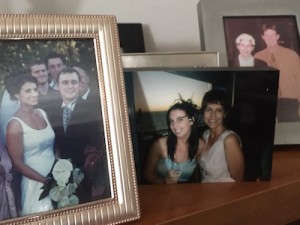 To my disappointment, these past few weeks I haven’t been able to bring myself to write very much. Friends had suggested writing through my grief, diarising it, as a way of working through the process. But what I’m finding is that my thoughts and feelings are changing so quickly that I distrust whatever I write down when I come to reread it, and I fear that whatever I write won’t do justice to Lecretia’s memory, or that it is too self-centred or earnest. No matter how aggrieved or full of self-pity I might feel, the magnitude of my wife’s loss is infinite in comparison with mine.
To my disappointment, these past few weeks I haven’t been able to bring myself to write very much. Friends had suggested writing through my grief, diarising it, as a way of working through the process. But what I’m finding is that my thoughts and feelings are changing so quickly that I distrust whatever I write down when I come to reread it, and I fear that whatever I write won’t do justice to Lecretia’s memory, or that it is too self-centred or earnest. No matter how aggrieved or full of self-pity I might feel, the magnitude of my wife’s loss is infinite in comparison with mine.
The morning Lecretia passed, and I had to front up to the cameras that day for a press conference we had planned a few days prior, I was in shock. I’m not sure what carried me through. And that was followed by a week of planning, and decisions, and logistics, as we arranged for Lecretia’s funeral and her interment. I barely had time to process anything. I felt numb.
Since then I have been at home, catching up with friends occasionally, but otherwise keeping my own company. I am intending to go through Lecretia’s belongings, but I keep putting it off. Her beautiful face is still everywhere, anyway. She’s inescapable, and I do not want to escape her. Her mother and father visited me and took away some of her clothes and jewelry, which is a relief of sorts. I did wonder whether being here alone would make me want to move. Yet it still feels like home, and I still feel connected to her here.
The strange thing is how at peace I feel. After the years of worrying about Lecretia and what might happen to her, and the sorrow at seeing her rapid decline, and dealing with her hearing, and her passing, and her funeral, and the ancillary but compounding concerns of work and travel and money, everything has now come to a rest state. I can relate to C.S Lewis, when he describes his experience in A Grief Observed:
“… grief still feels like fear. Perhaps, more strictly, like suspense. Or like waiting; just hanging about waiting for something to happen. It gives life a permanently provisional feeling. It doesn’t seem worth starting anything. I can’t settle down. I yawn, I fidget, I smoke too much. Up till this I always had too little time. Now there is nothing but time. Almost pure time, empty successiveness.”
Interestingly I found his loss of faith, which felt honest and raw, more convincing than its reclamation, which felt like calculus.
It’s only now that I am beginning to really come to terms with what losing Lecretia means, and how much she was so foundational to who I’ve become over these past twelve years. With her gone, there is this massive absence, and things that I was so sure of, and that I took for granted, are no longer there. I keep reaching out to latch on to assumptions about life I thought I could be sure of, and find that what I thought was firm and solid ground has given way to an abyss.
All those things that Lecretia meant to me, I am still attached to. They abide in me like hunger and thirst. And when I try and draw sustenance from the same places, out of habit, there’s now nothing. I know that I will need to find things to fulfill those needs somehow – the physical, the mental, the social, the romantic – but I know it’s months or more likely years before that will happen. For now I’ll have to endure this hunger and emptiness and it will always be a feature of who I am. I’ve spoken to a few people who have lost partners and they say similar things. It takes time, and it gets easier, they say, but it never really goes away.
There is this strange sense that I am not mourning often enough, or deeply enough. That the intensity of my grief should be a perfect reflection of the passion I had for my wife. That I have short-changed her memory somehow, ridiculously, by not being utterly inconsolable for weeks on end. But the loss is felt in moments – as sudden pangs or vertiginous stumbles – and then they pass. It’s sorrow but equally a profound sense of unfairness.
And then again:
“… this separation, I suppose, waits for all. I have been thinking of H. and myself as peculiarly unfortunate in being torn apart. But presumably all lovers are.”
The injustice, if there was one, was not the passing itself, which was inevitable, but the timing, which was too soon. I feel for Lecretia’s parents most of all, as although all lovers must inevitably part, children almost always survive their parents, and that didn’t happen this time. And what an extraordinary expression of their love Lecretia was. How great their sense of loss must be.
I am not sure what comes next. I feel unsettled. I think I want to disappear for a while, perhaps visit some of the places that Lecretia had wanted to visit, but I don’t feel like I can until I get Lecretia’s affairs in order, which I have begun to do. I have known people to become reckless and irresponsible with their lives through grief. I don’t feel like that’s going to happen to me. I carry her with me now, and at the moment I feel like I have a duty to honour her memory by being my best self. But I am not out of this process yet, and I think I have some way to go. There is much to do.
